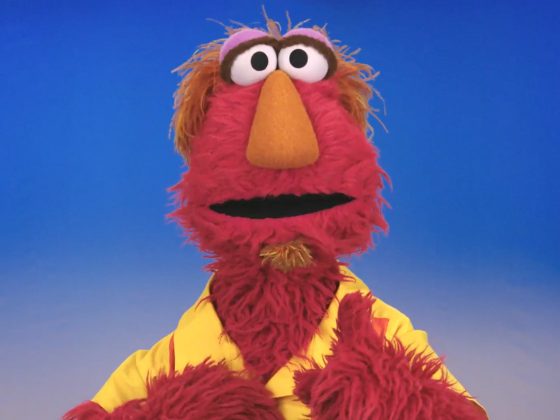
Talking to Military Children About Racism
Let’s talk about racism and how we need to treat each other fairly.
By Tiffany Eve Lawrence
It can be difficult to confront the topic of race with children. Often, living in a military community can feel like living in a bubble apart the civilian world, and issues with race might not hit your doorstep as hard. But many military parents have already started to tackle race conversations, because they’ve experienced racism themselves or they know that starting early can set the foundation to a kinder, fairer, and more respectful world.
Research shows that children as young as six months start to notice race-based differences. They are not colorblind! As military parents, we have the power to influence how our children process race, even at these early stages of their lives, because raising a child to be anti-racist is a parenting endeavor that begins now. Here are a few tips from parents and experts:
Bring It Home
Racism is a big topic, but it’s important to speak about it in a concrete way. It can confuse children when we treat racism as if it’s something that happens over there. Use things children interact with daily or something they are very familiar with to help begin to build your conversation.
For example, use crayons to color characters in different shades. Create names for them and ask your children how the crayons would feel if they were treated unfairly because of their color. How would people feel if they were treated unfairly too? This is a building block.
Put Them In The Scenario
Empathy is being able to put yourself in someone else’s shoes. Here are questions to promote empathy:
- “How would you feel if children didn’t play with you because you look different from them?”
- “Daddy/Mommy works in the military to keep our country safe. If someone in this country treated them unfairly because of their race/skin color, how would you feel?”
Keep It Short
Give your children bite-sized dialogue that they can easily digest, building on their interests and every day moments. Try staying between five and ten minutes. This way, your children can absorb the information and make sense of it clearly. They may have questions, or they may be ready to go and play. Either way, you’ve effectively laid a foundation for them to understand their own identity and also how to recognize the actions and effects of racism.
Reach Out to Your Neighbors
The military world is full of people from many different backgrounds and ethnicities, which gives you opportunities that a lot of civilian neighborhoods don’t have—a chance to cross the street and being friends with someone whose skin color and culture may be different from yours. By surrounding your children with people from difference racial, ethnic, and cultural backgrounds, they learn early that friends can be different from them. That’s a great opportunity to start discussing race.
Keep in mind that racism is still prevalent, and not everyone is willing to join against it. But how you respond is important.
Kindly Confront
If your child encounters discrimination toward them or one of their friends, remind your child that racism is wrong and that everyone deserves to be treated with kindness and respect. They are wonderful inside and out, and nothing can change that.
As a parent, the earlier you have conversations about race, the more informed and open-minded your children will be to practicing inclusive behavior and showing racial awareness. This is only the beginning!
Tiffany Eve Lawrence is a journalist who’s been writing professionally for several years. She has a unique way of unpacking topics that can be uncomfortable, ranging from parenting to mental health and social issues. Her ties to the military as a Marine Corps spouse put her in the center of sharing stories of how those who serve are impacted. Tiffany’s journalism and essays can be found online and in print in various publications, including Parents, Glamour, Romper, Courier Newsroom, Military Families Magazine, and more. www.bytiffanyeve.com
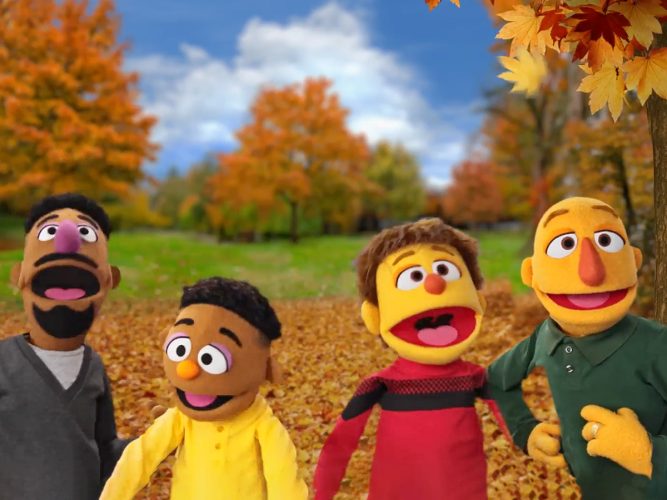
The Wiggle-Jiggle Game
A video about a getting-to-know-you game that helps kids appreciate similarities and differences.
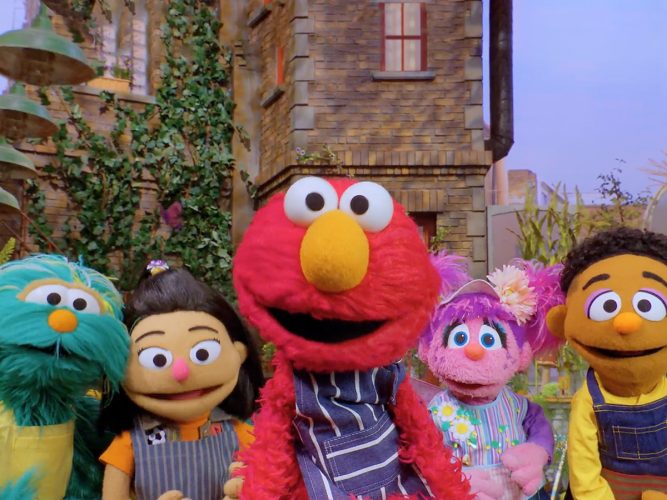
Community Song
A video about community.
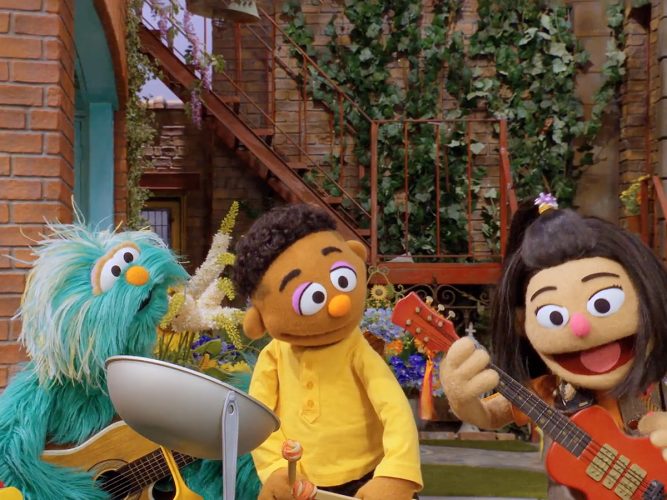
Musical Show & Share
A video about coming together to create something beautiful.
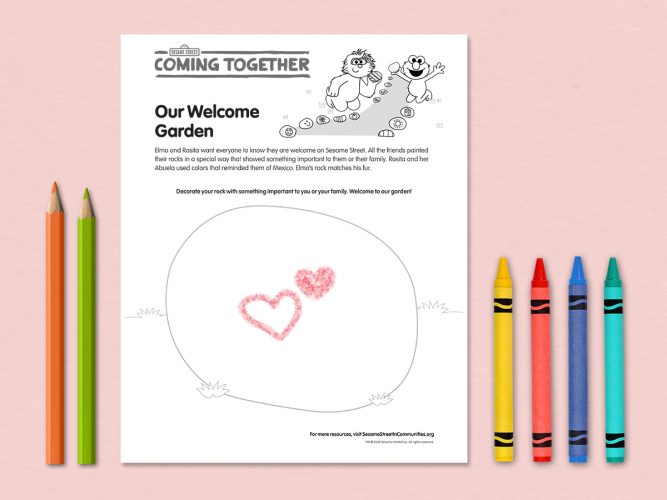
Our Welcome Garden
A printable page about a community rock garden.
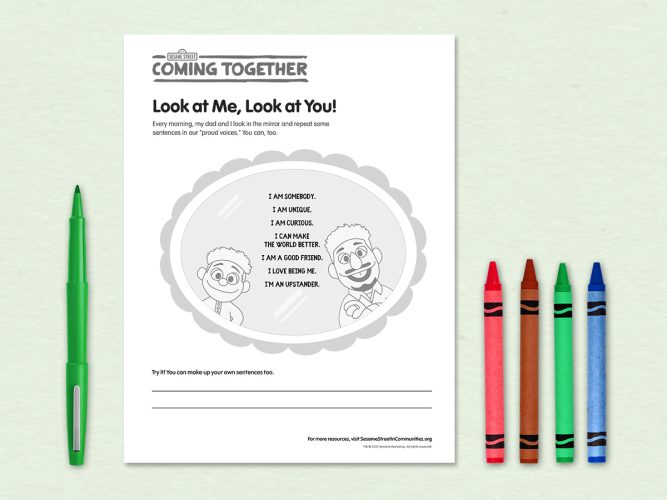
Look at Me, Look at You!
A printable page with parent-child affirmations.
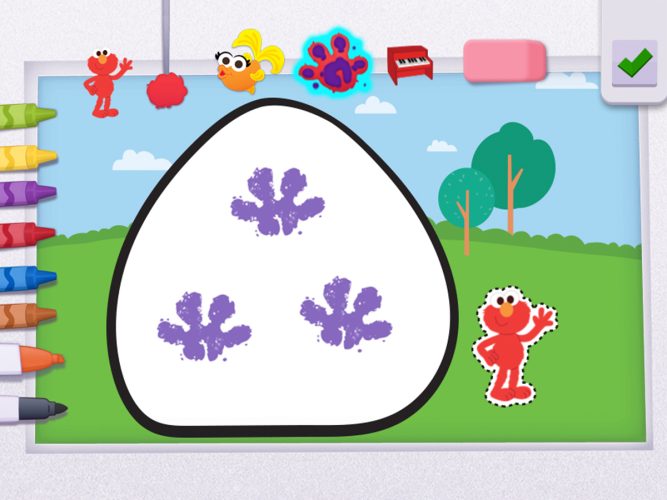
Welcome to Our Garden
An interactive game in which children add rocks to the Sesame Street community garden.
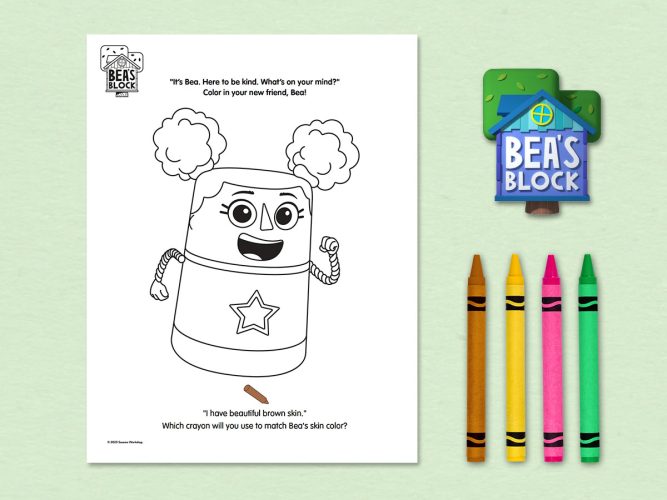
Bea’s Block Kindness Adventure Color & Activity Guide
Activities and coloring pages for children that celebrate kindness.
